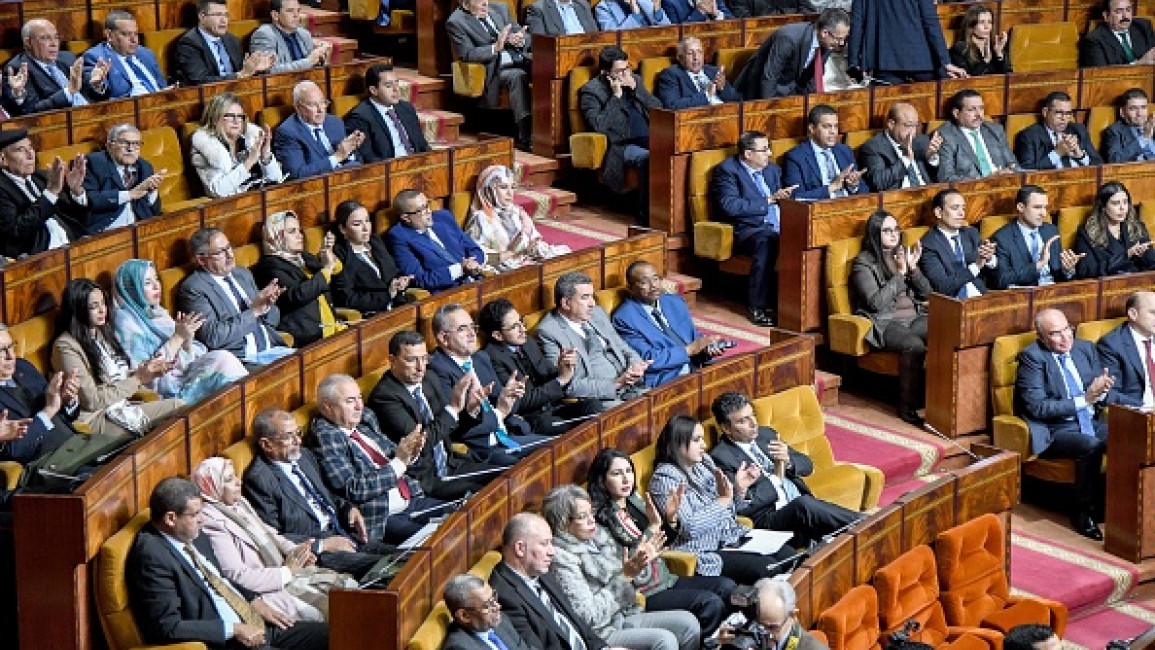Explainer: What is behind the Moroccan-European parliament tit-for-tat?
After years of silence, the European Parliament adopted last week an unfavourable text against the Moroccan state, calling on Rabat to free imprisoned journalists and preserve freedom of speech.
This is the first time the European Parliament sanctioned the North African kingdom through a resolution.
Even though the text is not binding, it led to a collective condemnation from the Moroccan parliament, including from opposition parties, which also calls for freeing prisoners of conscience.
"We will continue to defend national sovereignty, rejecting foreign interference (…) as we renew the demand for the release of all prisoners of conscience and movements," said Alkerch Khalihenna, a member of the opposition party "Democratic Confederation of Work", on Monday's parliamentary session.
— Amine Zary (@amine_zary) January 23, 2023
The European Parliament's change of heart came a few weeks after the eruption of the corruption scandal, loosely dubbed, 'Morocco-gate'.
Since December 2022, the European Parliament has been rocked by a corruption scandal involving MEPs and Moroccan and Qatari authorities.
So far, four people were placed in preventive detention in Belgium. Among them is Greek MEP Eva Kaili, who was vice-president of the European Parliament before the case broke.
On 29 December 2022, the German media Der Spiegel revealed that the Moroccan intelligence service (DGED) would have been involved at a high level in the influence of MEPs.
According to the report, the DGED had contacts as early as 2019 with former Italian MP Pier Antonio Panzeri, his assistant Francesco Giorgi (who is also the companion of Greek MEP Eva Kaili) and another Italian MP, Andrea Cozzolino.
Francesco Giorgi has reportedly told investigators that he was part of an organisation used by Morocco and Qatar to intervene in European affairs.
During the same month, the former MEP José Bové accused current Moroccan PM Aziz Akhannouch of trying to bribe him so he would vote in favour of the infamous EU and Morocco agriculture and fishery agreement.
Moroccan PM has sued Bove for defamation.
Fisheries are a sensitive topic in their own right for France, Spain and Italy, while for Morocco, they are also a critical strategic issue because of Western Sahara, a claimed territory by both Rabat and a separatist movement of Polisario Front.
Morocco has long pushed for fishery-rich Western Sahara to be covered under the Moroccan trade agreement with the EU to bolster Rabat's territorial authority.
A European court declared in 2021 that EU-Morocco trade deals covering farm and fish products were invalid as they were agreed upon without the consent of the people of Western Sahara.
However, the trade deals remained constant, awaiting the court of appeal's decision.
Several European politicians and their families are alleged to have been accomplices in corruption, money laundering, and organised crime involving the states of Morocco and Qatar in exchange for influence at the European Parliament.
Since the start of the investigation in June, law enforcement authorities in Belgium, Italy, and Greece have seized around US$1.6 million in cash, confiscated dozens of computers and mobile phones, and charged four individuals over the alleged offences.
Qatar has categorically denied the allegations, while Morocco has also strongly contested the accusations.
"At a time when a large number of members of the European Parliament are accused of corruption, certain circles hostile to Morocco are trying to create a smokescreen through a resentful resolution," argues an "authoritative source" at the Ministry of Foreign Affairs, quoted by local media close to the Moroccan state.
Moroccan Foreign Minister Nasser Bourita believes that "the partnership between Morocco and the EU is under attack," as the Moroccan parliament vowed to "review" its ties with its European counterpart.
Meanwhile, families of imprisoned journalists have celebrated the European Parliament's resolution as a symbolic win for their relatives.
"This vote confirms that [sexual assault] cases are indeed attacks against journalists to silence them," said the father of the jailed journalist Omar Radi in an interview with the AFP.
Omar Radi, 36, one of many journalists that inspired the resolution against Morocco, was sentenced to six years in prison on espionage and rape charges last year.
Radi denied both charges saying his two-year-long trial was politically motivated. The EU-parliament resolution confirms that the Moroccan state used sexual assault cases to silence critical voices. Rabat has denied these accusations on several occasions.
Reporters Without Borders (RSF) applauded the resolution as an end to "the annoying trend of exempting Morocco from any comment on attacks on freedom of the press and human rights," RSF said in a press release.



